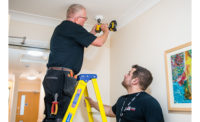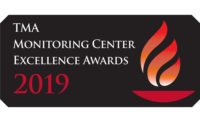Monitoring companies are not created equal. Each one has a unique approach, different focuses and specialties just like any other business.
“Many dealers view central station monitoring as somewhat of a commodity, but that couldn’t be further from the truth,” says Jim McMullen, president and chief operating officer at COPS Monitoring, Williamstown, N.J. “Even though companies appear to be the same on the surface, there can be material differences in personnel, training, technology, redundancy, support services, and many other factors.”
With all of the options out there, the choice is far from easy. Still, the days of installers handling their own monitoring services out of their garages are gone. With such constant advancements in technology come constant investments in the infrastructure to support it, and many dealers and integrators find that trusting a third-party monitoring center allows the dealer or integrator to pay attention to selling and installing.
“We are all in this business to protect lives and families, and a monitoring center is the most critical part of that, ensuring that someone will be there when the need arises,” says Bruce Mungiguerra, senior vice president of operations at MONI Smart Security, Farmers Branch, Texas (formerly Monitronics).
“A monitoring company is going to have more contact with your customer than you will after installation, so choosing a monitoring partner is one of the most important decisions an alarm company can make,” says Kevin Lehan, public relations manager at EMERgency24, Chicago. “An alarm contractor can choose one hardware and change to a different one later without impact, but when you have a central station, moving your accounts can be costly and time consuming and that’s why it’s important to make an informed decision the first time.”
Every installing company has a different list when it comes to choosing a monitoring partner — depending on how many accounts it has, what types of accounts it has, where it is located, and what internal values are most important. This unending number of variables is why there are so many options in the monitoring industry, and the challenge for dealers and integrators is to sort through those options and find that perfect partner.
Bates Security of Lexington, Ky. used to handle its own monitoring. “We switched to third-party monitoring about 10 years ago; they provide better monitoring than we were able to do and it allows us to focus on improving operations and sales,” says Jeremy Bates, president of Bates Security, ranked No. 64 on the 2016 SDM 100.
Bates says that there came a point when the company’s own monitoring center needed significant technology updates and other financial investments, and the company decided to explore partnerships that would take that burden away. Most important on the Bates Security list when looking for a monitoring partner was a technology-forward company, a good reputation in the industry, redundancy and the ability to continue doing their own data entry. “Overall our growth has really accelerated these last 10 years and I think a lot of that can be attributed to our switch to third-party monitoring. It has allowed us to stay focused,” Bates reflects.
DON’T GIVE UP OR GIVE IN
The best way to narrow down a monitoring partner, say those in the industry, is to come up with your company’s unique list of must-haves, and don’t give up on finding it.
“There are so many levels of decisions regarding picking and chooseing a central station partner that go beyond just providing good monitoring, because virtually all of the major providers have good monitoring. There is so much else to consider,” says Mark Matlock, senior vice president at United Central Control, San Antonio, Texas. “You really can’t belabor the point that you need a partner. The number one thing a security company needs is for customers to be taken care of. You want a partner that is truly going to help you succeed as a company and give you the tools you need to help you in your business,” Matlock adds.
Ryan Anderson, chief technology officer at Security Monster in Eugene, Ore., was looking for a monitoring company with a similar business philosophy as well as outstanding customer service. “I’ve switched [monitoring partners] before and what is really important for us is a central station that delivers the quality of service we expect and the same philosophies around business. They are an extension of our business and if I promise my client they’ll get a certain level of communication or service, I expect the monitoring partner to deliver,” Anderson says. In addition to customer service, Security Monster runs a contract-free business and Anderson says that finding the right monitoring partners that see the value in that philosophy takes careful research.
“It is easy to drink the Kool-Aid someone has handed you or listen to what a company says they have or offer, but it is so important to research, tour and validate any central station so you know what you are getting into, because it is your name on the line if your central station doesn’t perform,” Anderson says.
When Dan Burress, president of Imperial Surveillance Inc. in Arlington Heights, Ill., was looking to switch monitoring partners, he knew what he didn’t want from past experience. “With our old partner, I never had a sales rep reach out to me in the many years I did business there, not even to proactively say, ‘Hi, thanks for your business.’ I’m a relationship guy and I want someone to treat my business how they would treat their own business,” Burress recalls.
Along with communication and backend support, Burress knew that he needed a monitoring company that had the technology to keep his company modern, including internal and end user portals and mobile apps. “Not only do I now have a direct sales rep that will bend over backward to help us with whatever we need, but with the old monitoring company, our installers would have to call in to test a new account device, and now we have a simple mobile app. It makes a world of difference when you’re paying a technician to spend time out in the field,” Burress says.
FLAVORS OF COMMUNICATION
“There are so many various flavors of communication, mediums of alarm transmission methods and additional services available in the industry that not every central station is able to do everything,” says Jeff Martin, general manager at Paragon Monitoring Center owned by Vyanet Operating Group Inc., Albany, Ore. “Certainly, there are some that do come close and it’s important to find a third party monitoring service that allows dealers to provide a lot of bells and whistles to their customers, but there are no two exactly alike.” Indeed, Martin says, factors such as disaster recovery and redundancy; types of signals monitored; technical and back-end assistance provided; third-party services integrated and devices integrated with; and even physical location of the monitoring centers are some of the many differentiators available.
Jack DeMao, CEO of Electric Guard Dog LLC, Columbia, S.C. (SDM’s 2016 Dealer of the Year), has used the same third-party monitoring center for the past 20 years. As a security dealer with customers in 48 states, DeMao says that his central station is large enough to have the capacity to give him and his peers great customer service, yet regional enough to give him the customization he needs.
“Since we deal with so many large commercial companies with very different standards, I need a partner that is able to handle all of their customizations,” DeMao says. He suggests that security companies looking for a monitoring partner make a checklist and look at technologies, quality of operators and responsiveness in the event something goes awry. “Regardless of what you are doing today with your customers, you want to make sure there are additional services available [at a monitoring station] to provide them when you are ready to grow. The biggest differentiators are technology, quality of operators and ability to handle customization. Those can all vary quite a bit and require a lot of money from the monitoring center,” DeMao says.
DeMao is talking about customization in the context of customer service and response plans for individual customers. Other dealers also talk about customization in the sense of a monitoring center acting as the dealer’s brand. Functioning as a dealer or integrator’s brand is something that many monitoring partners offer in various ways and on differing scales, such as website, apps or portals with the dealer’s name and logo, inbound and outbound calls in a dealer’s name, and more.
“Technology is required to deliver a dealer’s brand seamlessly,” says Sharon Elder, vice president of sales at National Monitoring Center in Lake Forest, Calif. “It’s more than just answering the phone in a company’s name. Not all monitoring centers have the same level of technology to deliver the dealer’s brand,” Elder says.
She adds that true functioning of a dealer’s brand is everything from phone calls in a company’s name to branded signal notification emails that when the end user hits “reply” go directly to the dealer’s service department for scheduling, for example. “You have to be able to function globally and think regionally. Technology is a big challenge today for many central stations. Some [monitoring partners] can deliver a portion of the brand. The truth is, in order to do a seamless job of delivering the dealer’s brand, it takes an investment of money, engineering and technology,” Elder says.
VALUE IN THE RELATIONSHIP
Rex Verley, owner of NextGen Integrated Solutions of Las Vegas, has switched monitoring companies in the past, and said that the relationship he’s had with his current monitoring center for the last seven years has been mutually beneficial. “It is a relationship that has been great. It’s a two-way street and I can really appreciate that,” Verley says.
For Verley, allowing NextGen to do its own data entry, answering and making phone calls in the NextGen name, and even having outbound calls from the central station show up as NextGen on the end user’s caller ID, were all things he wanted in a monitoring partner. In addition, an emphasis on redundancy with a separate location in another region in the U.S. played a role. But, with those needs met, also topping the list in Verley’s mind is accountability.
“One of the things that I love about [my current monitoring partner] is that if something happens or they make a mistake — which doesn’t happen often — they take responsibility for it, tell me how they fixed the immediate situation, and the steps they will take so the situation doesn’t happen again. I run my business building relationships with suppliers, vendors and customers and they value the relationship of their customers as well,” Verley explains.
Showing a dealer customer they are valued is a must with any monitoring partnership, according to Monica Quigley, central station manager at Moon Security in Pasco, Wash., which is ranked No. 85 on the 2016 SDM 100. Quigley and Michael Miller, president of Moon Security, say monitoring companies can show customers how much they value their business through providing knowledge, educational and technical support, a high level of customer service and flexibility.
Moon Security has done its own monitoring from its inception, but once it received UL listing in 2009, the company began adding third-party accounts. Miller says he wanted to be able to give peers a level of expertise and knowledge that was missing in the industry in his experience.
“Sometimes, those newer to the industry may focus only on the cost, but those that stay in this industry for the long haul know that you get what you pay for,” Miller says.
Shooter Stein, president of NCA, Nashville, Tenn., ranked No. 84 on the 2016 SDM 100, agrees that cost may be one of the first things that come to a dealer’s mind when looking for a monitoring partner, but it is not the most important factor. Stein switched monitoring partners more than 15 years ago and has been happy with the company’s current central station since. “I want my central station to represent me in the best ways possible and I believe a lot of that is open dialogue, commitment to each other and a good relationship,” Stein says. “One of my biggest questions is if the central station takes care of its people. Employees are the backbone of a company and if they are not being taken care of, you can expect trouble down the road.”
In the end, whether quality of operators, level of customization and technology, price or something else proves most important, the only way a company can be sure they’re getting everything they want in a monitoring partner is to make a list and investigate.
“I believe you have to go to the location, spend time there, talk with the trainers, sit and watch the operators, and talk to the people managing or who would manage your account,” advises Morgan Hertel, vice president of technology and innovation at Rapid Response Monitoring, Syracuse, N.Y. “It’s like buying a house: You’d never do that just over the Internet. The way to really get a sense for something is to see it. Make sure that the claims a company make are really true. You’ve got to select someone that understands the business and can treat your customers right.”












